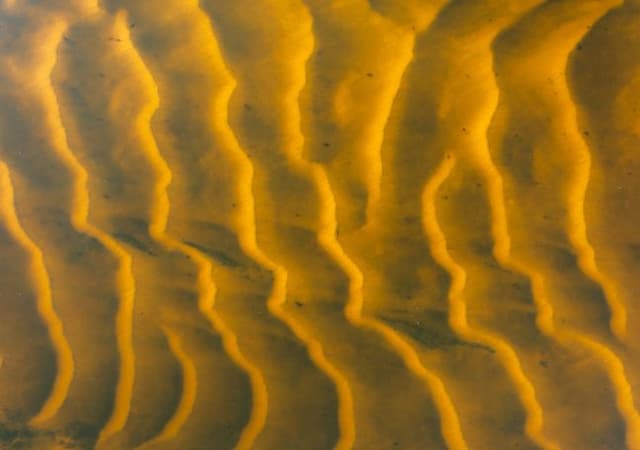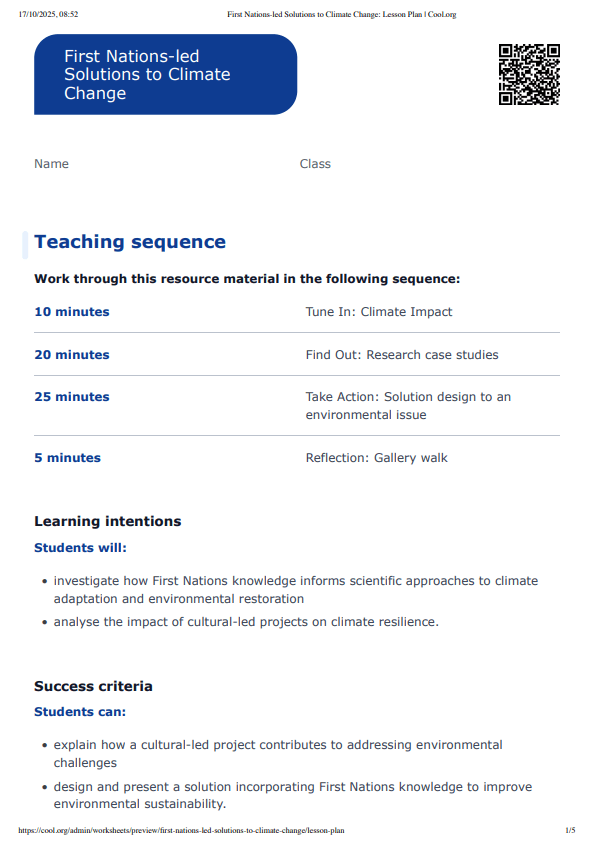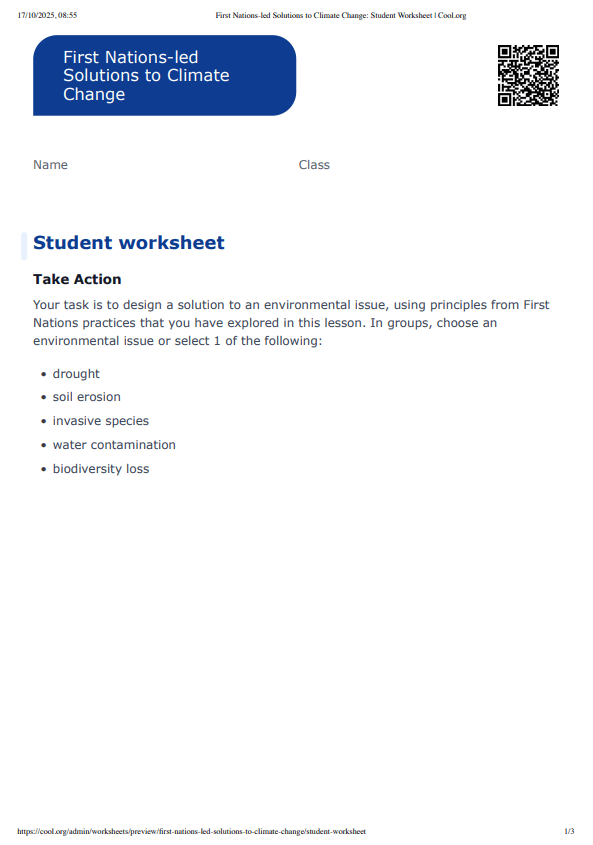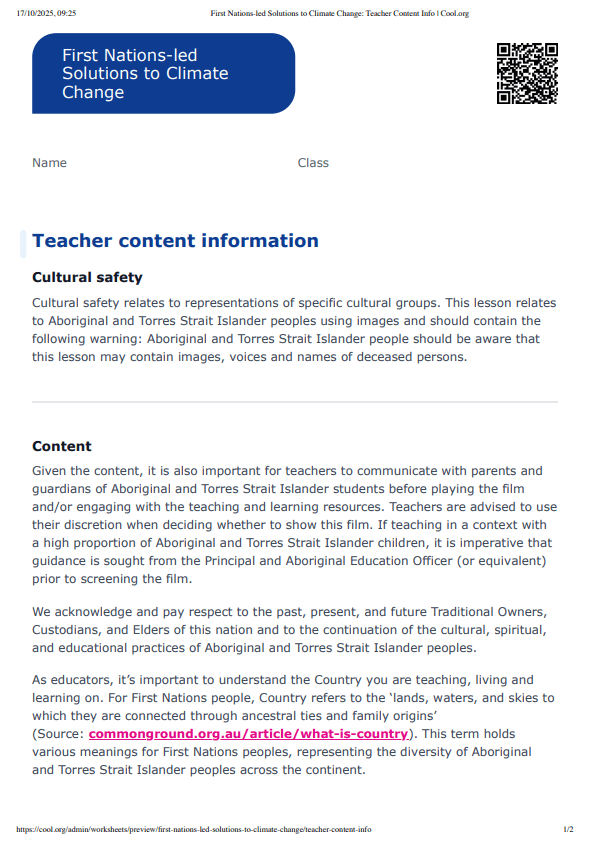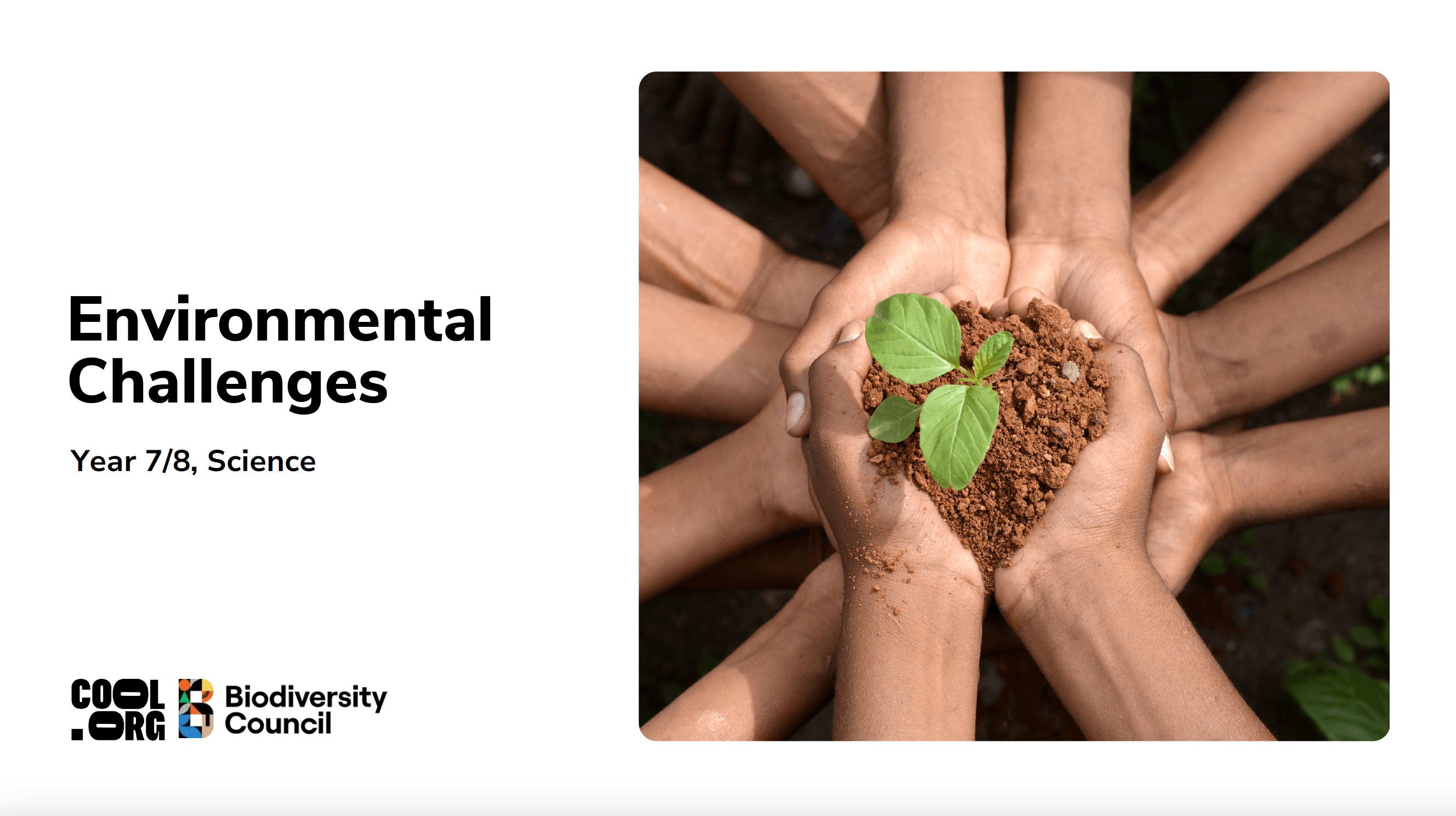Learning intentions
Students will:
- investigate how First Nations knowledge informs scientific approaches to climate adaptation and environmental restoration
- analyse the impact of cultural-led projects on climate resilience.
Success criteria
Students can:
- explain how a cultural-led project contributes to addressing environmental challenges
- design and present a solution incorporating First Nations knowledge to improve environmental sustainability.
